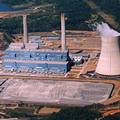 美國環保署10日要求聯邦上訴法庭,駁回布希政府放寬阿拉巴馬州空氣污染標準的判決,以配合歐巴馬起草新法案。
美國環保署10日要求聯邦上訴法庭,駁回布希政府放寬阿拉巴馬州空氣污染標準的判決,以配合歐巴馬起草新法案。
四個民間團體曾在布希政府時期控訴環保署無權放寬空氣污染標準,干預煙塵污染嚴重的伯明罕區;環保署此番動作顯示,歐巴馬政府不預備繼續為布希政府的案件辯護。
2008年8月,環保署公佈伯明罕空氣污染不符聯邦政府的空氣微粒(煙塵)標準,這些空中微細固體和液體,成份可能為酸、有機化合物、金屬物質等,不僅會沈積在肺和血管,甚至會導致心肺疾病。
當時,在阿拉巴馬營運兩家火力發電廠的田納西河谷管理局(Tennessee Valley Authority, TVA),和營運超過六家電廠的阿拉巴馬能源(Alavama Power),正大力遊說環保署放寬大型污染源的排放煙塵標準。
聯邦法庭在2007年就發現田納西河谷管理局違反煙塵控制法(能見度標準),排放量超出標準值3000多倍;田納西河谷管理局擔心,倘若不放寬標準,聯邦法庭將展開更多控制措施,因而將目標轉向遊說布希政府放寬標準,並同步削弱強制執行力。
環保署長期以來一直認定空氣能見度是煙塵污染的基本指標,2008年10月,布希政府屈於工業界壓力,枉顧基本法條,同意放寬阿拉巴馬州的空氣能見度標準。
環境法(GreenLaw)代表阿拉巴馬環境協會、自然資源保護委員會、山巒協會(Sierra Club)和孩子的地球基金會(Our Childern's Earth Foundation)控告布希政府違法。
針對環保署4月10日要求聯邦上訴法院第11巡迴審判庭發回重審能見度標準,讓環保署能重新規劃整起事件,自然資源保護委員會空氣清淨法主席沃克(John Walker)表示:「我們當然希望環保署不要為這個傷天害理的決策辯護,也很慶幸歐巴馬政府願意重新審視這個事件。」
沃克說:「布希政府在下台前以迅雷不及掩耳的速度做出這個骯髒的決策,來討好美國兩個最大的污染源。阿拉巴馬州民應受到更周延的保護,我們樂觀認為環保署這個決定將帶來更乾淨的空氣。」
阿拉巴馬環境協會行政主席喬奇曼(Michael Churchman)也表示:「阿拉巴馬的污染源過去30年都符合先前的標準,如今貿然宣稱標準必須放寬,實在不合理。許多污染源的控制污染設備漸漸老化,他們不願汰舊換新,以最新產品更有效監控污染物。但願環保署這次的決定可以迫使他們擦乾淨手腳,也還我們一片乾淨的天空。」
The U.S. Environmental Protection Agency today asked a federal appeals court to return to the agency a Bush administration decision that had weakened an Alabama air pollution regulation, in order to allow the current administration to reconsider.
EPA's action reflects a decision by the Obama administration not to defend the Bush administration action in a lawsuit filed by four citizen groups alleging that EPA had no authority to ease restrictions on the amount of smoke that sources such as power plants may emit in the heavily polluted Birmingham area.
In August 2008, the EPA announced that the Birmingham area was failing to meet minimum federal air quality standards for fine particles, commonly called soot. These airborne, microscopic solids and liquid droplets, made up of acids, organic chemicals, metals, and other matter, can lodge deep in the lungs and bloodstream, aggravating a number of heart and lung diseases.
At the same time, the Tennessee Valley Authority, which operates two large coal-fired power plants in Alabama, and Alabama Power, which operates six more, were lobbying EPA heavily to ease standards governing the amount of smoke that large air pollution sources may emit.
A federal court in 2007 had already found that TVA had violated the smoke-control standard, also known as the opacity standard, over 3,000 times, and TVA feared the court would impose additional controls if the standard was not weakened. So TVA turned to the Bush administration to weaken the rules and simultaneously weaken the enforcement lawsuit.
Last October, the Bush administration succumbed to industry pressure, disregarded basic legal standards, and agreed to weaken Alabama's opacity rule, even though EPA had long acknowledged that opacity standards are a basic control measure for soot pollution.
The Alabama Environmental Council, the Natural Resources Defense Council, Sierra Club, and Our Children's Earth Foundation represented by GreenLaw, filed a lawsuit challenging the Bush Administration action.
Today EPA asked the Eleventh Circuit Court of Appeals to send the rule back to EPA to allow the agency to reconsider the entire matter, in a legal filing requesting "voluntary remand" of the rule.
"We welcome EPA's decision not to defend this harmful rule in court and appreciate the Obama administration's willingness to reconsider it," said John Walke, Clean Air Director for the Natural Resources Defense Council.
"The Bush administration rushed this dirty decision out the door just before leaving office to satisfy the demands of two of the biggest polluters in America," said Walke.
"Alabama's residents deserve better protections, and we are optimistic that today's news signals the promise of healthier air."
Michael Churchman, executive director for the Alabama Environmental Council, said, "Alabama polluters had to comply with stronger standards for 30 years, so the idea that the rule needed to be weakened for them to comply was absurd. Many of those polluters are using control equipment which is aging and degrading instead of using up to date technology that can perform much better. Hopefully EPA's action today will lead them to clean up their act and the state's air."




